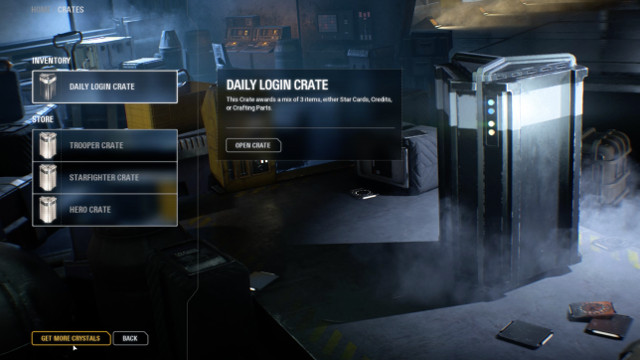After agreeing to look into loot box monetization, at the request of New Hampshire Democratic Senator Maggie Hassan, the Federal Trade Commission (FTC) has now outlined its plans to host a public workshop later this year. The intention of this event is to create a forum for a large group, including parents, consumer advocacy organizations, and the gaming industry itself, to discuss loot boxes.
As indicated in a recent letter from FTC Chairman Joseph Simons to Senator Hassan, which was obtained by Variety, it appears that, with this workshop, the FTC is trying to give the games industry a chance to create some sort of regulation around loot boxes on its own. This approach wouldn’t be unprecedented, as the ESRB, a ratings board intended to provide consumers with information on which games are appropriate for children, was created in a similar way in the ’90s.
Simons even addresses the FTC’s work with the ESRB over the years, stating:
For example, at the request of the President and Congress starting in 1999, the FTC issued a series of reports on the extent to which the movie, music, and video game industries marketed violent entertainment to children. As the video game industry has rapidly evolved, we have remained vigilant for potential consumer protection issues, and we have continued outreach efforts to self-regulatory bodies such as the Entertainment Software Rating Board.
However, as Gamasutra points out, the ESRB has, thus far, not participated in the regulation of loot boxes, suggesting that the board does not believe them to be a form of gambling. Some lawmakers, on the other hand, seem to feel differently, and several countries have already begun to regulate loot boxes.
The concern of loot boxes as gambling is at the foundation of Senator Hassan’s request for FTC involvement. While Simons’ letter does indicate the commission’s interest in facilitating conversations about loot boxes, it does not offer confirmation on whether a full investigation is currently underway.
Whether or not they’re technically considered gambling, most players would agree that there is an element of gambling involved when purchasing loot boxes, as there’s often no guarantee of what a player will get when opening one. At best there may be a “quality” guarantee, where boxes are confirmed to grant a specific type of item, such as a “rare” or “legendary”.

Even with these guarantees, it is possible that a player may end up with a duplicate item that can’t be traded or sold. This can result in some players repeatedly buying boxes until they finally get the item they want, which may come with a hefty monetary cost. This can become additionally problematic when children use the credit card information stored in their parent’s mobile devices to purchase loot boxes.
While the results of the upcoming workshop remain to be seen, its existence does indicate that the FTC has some plan for investigating loot boxes. Only time will tell if that plan demands an industry-wide change to loot box practices.
More details on Simons’ letter can be found on Variety‘s website. More details on the investigation can be found on Gamasutra.







Published: Feb 25, 2019 01:35 pm